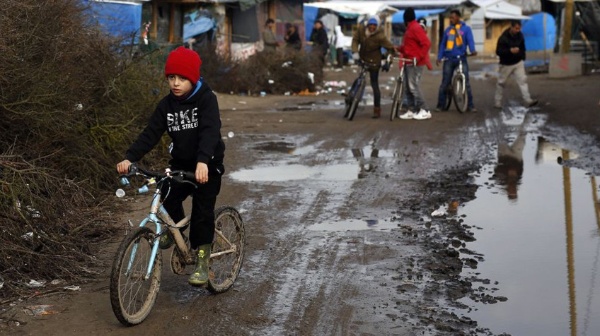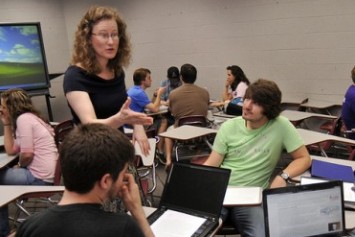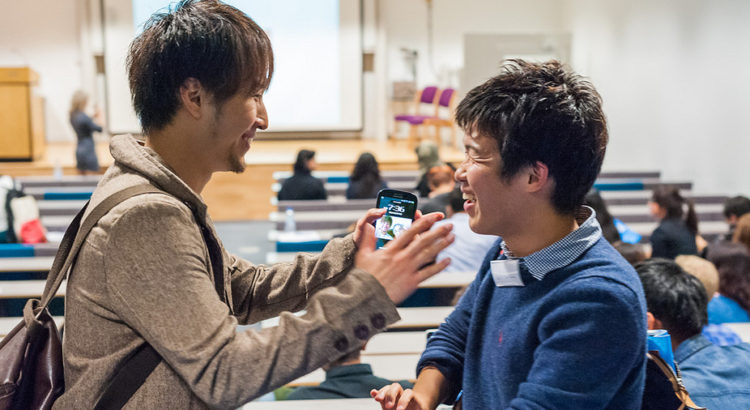Europa/Reino Unido/8 de noviembre de 2016/Fuente: www.ei-ie.org
Los niños desfavorecidos es probable que sean los más afectados por los cambios de gobierno a los fondos escolares, de acuerdo con los nuevos recortes Escuela iniciativa en línea de sindicatos de la educación en marcha por dos sindicatos de la educación del Reino Unido. Las escuelas con los niños más desfavorecidos tendrán que hacer frente los mayores recortes de fondos cuando el gobierno reasigna fondos para las escuelas, según los cálculos de la Unión Nacional de Profesores (NUT) y la Asociación de Maestros y Profesores (ATL).
Sin autoridad local areaswould general estará mejor después de los fondos escolares reasignación
Los cálculos, que son objeto de schoolcuts.org.uk, un nuevo mapa interactivo de las escuelas de Inglaterra lanzado el 4 de noviembre por los sindicatos, que muestran lo siguiente ocurrirá si el gobierno simplemente reasigna el presupuesto de las escuelas generales existentes ‘:
– Las escuelas con las ingestas más necesitadas se enfrentarían a las mayores pérdidas medias en términos reales – 578 £ por alumno en las escuelas primarias y 780 £ en las escuelas secundarias.
– La pérdida media términos reales para las escuelas primarias sería £ 96.481, o 401 £ por alumno.
– La pérdida media términos reales para las escuelas secundarias sería £ 290 228, o 365 £ por alumno.
En adición:
– Nueve de cada 10 escuelas de Inglaterra (92 por ciento) podrían enfrentarse a los recortes presupuestarios en términos reales durante los próximos cuatro años.
– No hay un área autoridad local es probable que vea un aumento real de los fondos términos de sus escuelas y academias, incluso después de que el impacto redistributivo de una nueva fórmula.
– Promedio de los recortes presupuestarios podrían ser del 6,5 por ciento en las escuelas primarias y 9 por ciento en las escuelas secundarias.
El schoolcuts.org.ukwebsite permite a los usuarios ver con precisión cómo cada escuela podría verse afectada en términos reales por la intención del Gobierno de aplicar una nueva fórmula de financiación para las escuelas, junto con los recortes términos reales a los fondos por alumno y el costo se incrementa ser impuestas por el gobierno. Mediante la introducción de un código postal en la página web, los visitantes pueden ver cómo todas las escuelas de esa zona es probable que irá hasta el año 2020 y cómo que la pérdida de financiación estimada equivale al número de puestos de maestros.
Disadvantaged children are likely to be hit hardest by government changes to school funding, according to the new School Cuts online initiative from education unions launched by two UK education unions.
Schools with the most disadvantaged children are likely to face the biggest funding cuts when the government reallocates school funding, according to calculations by the National Union of Teachers (NUT) and the Association of Teachers and Lecturers (ATL).
No local authority areaswould overall be better off after school funding reallocation
The calculations, which are the subject of schoolcuts.org.uk, a new interactive map of England’s schools launched on 4 November by the unions, show that the following will occur if the government just reallocates the existing overall schools’ budget:
– Schools with the most deprived intakes would face the greatest average losses in real terms – £578 per pupil in primary schools, and £780 in secondary schools.
– The average real terms loss for primary schools would be £96,481, or £401 per pupil.
– The average real terms loss for secondary schools would be £290,228, or £365 per pupil.
In addition:
– Nine in 10 schools in England (92 percent) could face budget cuts in real terms over the next four years.
– No local authority area is likely to see a real terms funding increase for its schools and academies, even after the redistributive impact of a new formula.
– Average budget cuts could be 6.5 percent in primary schools and 9 percent in secondary schools.
The schoolcuts.org.ukwebsite enables users to see precisely how each individual school could be affected in real terms by the Government’s intention to implement a new funding formula for schools alongside real terms cuts to funding per pupil and cost increases being imposed by the government. By entering a post code on the website homepage, visitors can see how all the schools in that area are likely to fare between now and 2020 and how that estimated funding loss equates into numbers of teacher posts.
School funding reallocation not appropriate governmental solution to ensure quality education
“No head teacher should be put in the position of increasing class sizes, leaving building repairs undone or cutting staff and resources simply to balance the books, nor should any parent accept this for their child,” stressed NUT General Secretary Kevin Courtney.
We are one of the richest countries in the world, and can and should be funding our schools properly, he said adamantly.
The ATL General Secretary Mary Bousted also urged “the Government to increase the overall funding for schools.” If it just reallocates the existing budget many children will lose out, with some of the most deprived children being hit hardest, she condemned.
Highlighting that no school should be forced to cope with a drop in funding that will jeopardise its ability to deliver a broad and balanced curriculum and recruit and retain staff, she reminded that “all children deserve a fair chance to succeed and should not suffer because schools are under-resourced by the Government and teachers over-worked.”
In their joint statement, NUT and ATL are calling on the Government to take immediate action to inject much needed money into an already beleaguered system and protect schools from rising inflation, as it is in their views “the only sensible solution to a crisis already underway and which is set to get harder for schools to cope with”.
The report by NUT and ATL, “Invest, Don’t Cut – The predicted impact of Government policy on funding for schools and academies by 2020”, presenting findings from the NUT/ATL interactive website is available here.
Fuente: https://www.ei-ie.org/en/news/news_details/4164












 Users Today : 79
Users Today : 79 Total Users : 35404557
Total Users : 35404557 Views Today : 91
Views Today : 91 Total views : 3334131
Total views : 3334131